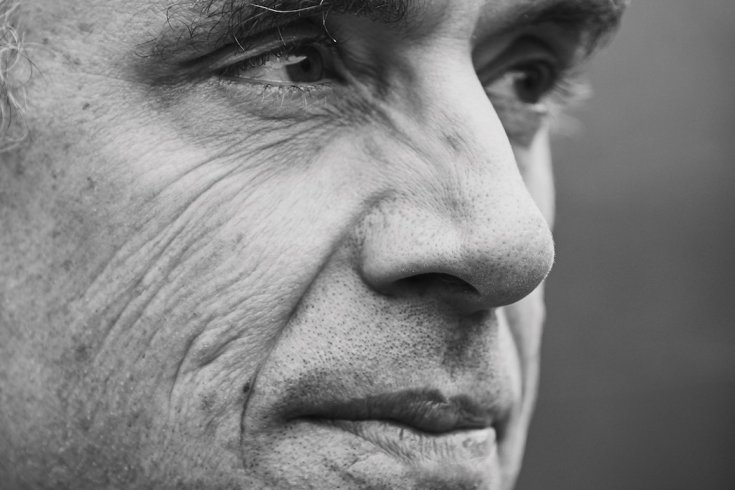Earlier this month, Lindsay Shepherd, a graduate student and teaching assistant at Wilfrid Laurier University, was summoned by her supervisor to a meeting to discuss a video that she had shown to students. During a tutorial on gendered language, Shepherd had played a five-minute clip from an episode of TVO’s The Agenda, in which Jordan Peterson, a University of Toronto psychology professor, argued that forcing people to use “ze,” “zir,” and other non-binary gender pronouns constituted an infringement of free-speech rights. Peterson’s opponents in the TVO debate countered that his refusal to address students by their preferred pronouns was tantamount to discrimination, abuse, and violence.
At the meeting, which Shepherd recorded, faculty members as well as a member of the Gendered Violence Prevention and Support office, attempted to browbeat her into accepting the proposition that she had committed an act of transphobic violence: by refusing to adopt gender-neutral pronouns, they suggested, Peterson was questioning non-gender-conforming people’s very right to exist; by broadcasting this view to her class, Shepherd had created a toxic learning environment and legitimized an opinion that now contravenes the Human Rights Act. Shepherd asserted that she doesn’t even agree with Peterson. Through tears, she said she simply wanted her students to bring their critical thinking to bear on his views. No matter. Shepherd’s failure to condemn Peterson, her supervisor told her, was akin to failing to condemn Adolph Hitler. The university’s president, as well as the professor responsible for the meeting, have subsequently apologized for the conversation.
Laurier’s initial handling of the incident was a coup for Peterson—who managed to embarrass the institution without raising a finger. Peterson first came to public prominence in the fall of 2016 with a YouTube series titled “Professor Against Political Correctness,” which held universities “responsible for the wave of political correctness that has rolled across North America.” The videos—which, taken together, have clocked hundreds of thousands of views—established Peterson as the most prominent academic proponent of the belief that universities have become cells of intolerant leftist groupthink, catering to snowflake students for whom every disagreeable opinion inflicts trauma. Judging from the media fallout of the Laurier incident, the takeaway for many Canadians has been: See? Peterson was right all along.
To which the correct response is: Right about what? Peterson may be correct that, in some cases, universities have failed to strike the right balance between protecting minority rights and preserving liberal, democratic values, including freedom of speech. The Laurier incident is one of those cases. The problem is that Peterson folds this argument into a politically reactionary and often downright paranoid world view that appears designed to curry favour with the alt-right.
In fan-edited YouTube videos—including “Jordan Peterson DESTROYS Islam with FACTS” and “‘They’re only TWO Genders!’ Jordan Peterson DESTROY Transgender pundit”—Peterson blows all of the familiar Breitbart- and Rebel-endorsed dog whistles. “Islamophobia,” he has also tweeted, is “a word created by fascists and used by cowards to manipulate morons.” The real cause of the recent wave of sexual assault allegations, he believes, is due to sex no longer being “enshrined in marriage.” In a conversation with Camille Paglia, he lamented that men can’t exert control over “crazy women” by physically beating them. He echoes Donald Trump on fake news, telling followers they can’t trust the media, and makes a point of admiring Trump’s intelligence and accomplishments. Few in the media who have lauded Peterson as being “right” on free speech in universities have bothered to qualify that he is dangerously wrong about everything else, thus bringing him new followers and burnishing his brand.
That brand has become immensely profitable: after Peterson was denied a SSHRC grant this year, his friends at the Rebel launched an Indiegogo campaign that has netted him, at the time of writing, $195,230. Meanwhile, his Patreon page is now bringing in more than $60,000 each month from approximately 6,400 supporters. His YouTube channel, where he uses material filmed during his U of T lectures to flog his fundraising programs—which should raise serious ethical concerns for the university—has more than half a million subscribers. It seems indisputable: Peterson is now the most famous professor in Canada.
What he is not, however, is the author of any lasting work of scholarship, the originator of any important idea, or a public intellectual of any scientific credibility or moral seriousness. Peterson’s sole discovery is that “postmodernism” can be usefully exploited alongside the more familiar, established populist scare tactics. His message, as the intellectual guru of the alt-right, is that humanity’s natural hierarchies are under attack, that the future of Western civilization hangs in the balance of this “war of ideas.”
Every form of populism needs its scapegoat and Peterson’s is the academic humanities, which he caricatures as “indoctrination cults” for “postmodern neo-Marxism.” Where far-right figures such as Richard Spencer, Milo Yiannopoulos, and Steve Bannon attack sexual and racial minorities directly, Peterson instead attacks gender studies and race studies departments. In August, Peterson declared open season on the humanities, stating that he wants to reduce enrollment in “postmodern neo-Marxist cult classes”—including English, sociology, and anthropology—by 75 percent. Until recently, his plan to eviscerate humanities departments hinged upon a “postmodern lexicon detector” that would scour academic syllabi for “postmodern” content. Peterson then planned to publish the names of these postmodern professors, who he once said play “insane, bordering on murderous, intellectual games” with their students.
But what exactly does Peterson mean by “postmodern neo-Marxism”? In a recent series of lectures and interviews, all available on YouTube, Peterson traces this supposedly lethal strain of totalitarianism back to Jacques Derrida and Michel Foucault, two French philosophers whom he accuses of waging an “all-out assault on categories of intellectual thought.” The central claim of these postmodern thinkers, Peterson argues, is that “there are an infinite number of ways to interpret any finite set of phenomena.” As a direct result, our moral or aesthetic evaluations—our efforts to discern good from evil, beauty from ugliness, truth from falsehood—are arbitrary and therefore meaningless. The postmodernists left us in a relativistic fog from which we have yet to emerge.
As a strategy to excite hysteria over the collapse of Western values, Peterson’s tack is effective: it provides a veneer of academic rationale for the widespread anti-intellectual suspicion that a class of decadent, ivory-tower elites who are intoxicated by European ideology are leading the way to cultural suicide. As a description of what the “postmodern” thinkers actually wrote, it is very flawed. If all of Derrida’s and Foucault’s writing can be made to support one sweeping claim, it is not that interpretation is potentially infinite and therefore meaningless. It is that interpretation must be socially and historically contextualized in order to become meaningful. Much art that we now deem canonical—Jackson Pollock’s drip paintings, for instance—would have struck nineteenth-century art patrons as incomprehensible garbage. The point is simply that artistic values are not universal but produced by historically situated communities of people.
Let’s be clear: Peterson doesn’t understand the major thinkers in the “postmodern” tradition who he libels for money. His grotesque caricature and slander of the humanities is very different from what actually happens in humanities classrooms. Peterson may believe that all humanities courses have united under the banner of “postmodern neo-Marxism,” but even a first-year undergraduate soon realizes that her professors often disagree and that the “humanities” are not a monolithic entity. They are, instead, a teeming diversity of subject matter, methodologies, and modes of critical thinking.
While only a tiny minority of humanities professors teach Derrida, a majority of the courses are dedicated to critical thinking, which is precisely what Lindsay Shepherd had hoped to nurture by showing the TVO clip in the first place. What makes critical thinking “critical” is the tendency to read against the grain of accepted wisdom and to question the inherited power hierarchies that structure human relations. Peterson’s immense popularity on the far right lies precisely in his intellectual validation of those traditional power hierarchies as natural and necessary—a message perfectly attuned to those who feel dispossessed and threatened by movements for sexual and racial equality. Most of Peterson’s videos offer variations on the theme that human behavior is the product of an ancient “male dominance hierarchy” that separates winners from losers—and that any attempt to question or subvert this hierarchy will result in unhappiness for the individual or chaos for society.
To fully grasp the depth of Peterson’s belief in power hierarchies, take his commitment to IQ testing: “If you don’t buy IQ research,” he has told his students, “then you might as well throw away all of psychology.” Peterson rejects the theory of multiple intelligences (emotional intelligence, musical intelligence, and so on) and insists that all of human intelligence is biologically determined, essentially unalterable, and expressed in a single number that can be ranked. Your IQ, he says, will govern where you end up in life: with an IQ of 130, you can be an attorney or an editor; at 115, you can be a nurse or a sales manager; at 100, you can be a receptionist or a police officer; at 90, you can be a janitor.
Peterson’s defence of IQ rests on shaky foundations. While he tells students that IQ was empirically established through Charles Spearman’s factor analysis, he does not share the well-known critique of that method: factor analysis supports both of the contradictory causal explanations of intelligence (intelligence as innate versus intelligence as the product of environmental advantage). Peterson then stacks the deck in favour of biology, citing brain size and neural conduction velocity (essentially, the speed at which an electrical pulse moves through tissue) as the determinants of IQ. Again, he does not tell students that both explanations were discredited by later research.
In the tradition of nineteenth-and early twentieth-century pseudo-scientists, phrenologists, quacks, and scientific racists, Peterson’s commitment to IQ is simply the reflection of his commitment to an unalterable hierarchy of human beings. And this is why his dismissal of “unnatural” and “made up” gender pronouns, alongside his casual sexism—his belief that women would be better served by having babies than careers and that male feminists are “creepy”—turns out to be central to his intellectual project, which seeks to resurrect the conventional patriarchal pecking order. For Peterson, transgender people and powerful women upset the “male dominance hierarchy” that forms the centerpiece of his thought. His world view is predicated on the promise of restoring authority to those who feel disempowered by the globalism, feminism, and social-justice movements he derides.
Faced with the threat posed by Peterson, many in the universities have opted for a strategy of enforced disengagement. According to the attitude recently displayed by Laurier faculty, simply recognizing his perspective on gender-neutral pronouns represents harassment. But the fact that his popularity and influence have continued to skyrocket over the past year should put the lie to the notion that disengagement is an effective containment strategy. More crucially, the prohibition of his views isn’t only ineffective, it also exacerbates the problem, lending credence to the argument that universities are intolerant of ideological dissent. Perversely, the anti-harassment policies that were intended to defend sexual minorities have instead stopped us from meeting the threat head on.
Shepherd modelled a far more effective strategy. Rather than banning Peterson’s views and hoping for the best, she suggested we challenge his assumptions, correct his willful misinterpretation of the humanities, and reveal the pseudo-scientific basis of his attitudes. The solution lies not in silencing offensive arguments or in preaching to students but in cultivating the critical-thinking abilities that will allow them to recognize Peterson’s fallacies for themselves.
Peterson knows what he stands for. He is fighting for the souls of our students, and his message, while deeply alienating to some, is immensely seductive to many others. We have an intellectual obligation to meet this threat directly and expose him for exactly what he is: a YouTube star who offers a wafer-thin intellectual validation for the political retrenchment of traditional hierarchies. Peterson is calling for war within the humanities. We should happily oblige.





